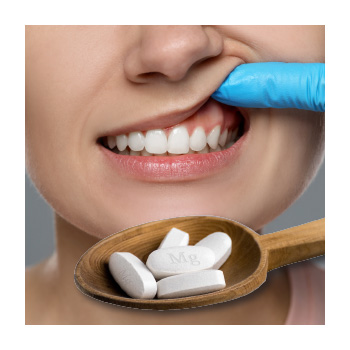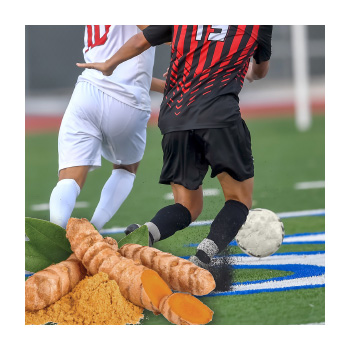


Sign-up for {N}power to get exclusive discounts, newsletters, members-only features, and more!
 Denver - Design District - Alameda and Broadway
Denver - Design District - Alameda and Broadway
368 S Broadway
Denver, CO 80209
United States
 Preferred Store:
Select a Store
Preferred Store:
Select a Store

A 2022 research analysis of the National Health and Nutrition Examination Survey (NHANES) database found that dietary magnesium was inversely associated with the incident of periodontitis, and that at least one half of the US population has a magnesium deficiency. This means increasing magnesium intake through diet and supplementation could help prevent periodontitis.

The study, published in the journal Frontiers in Nutrition,1 analyzed a subset of the NHANES 2013-2014 participant data of those who completed both a dietary recall and a dental clinical examination as part of the survey. They divided participants into quintiles based on daily magnesium consumption and found that participants in the top quintile of dietary magnesium intake had a lower prevalence of periodontitis than those in the bottom quintile. Furthermore, the severity of periodontitis increased in the groups with the lowest dietary intake of magnesium.
The results suggest that a lack of magnesium in the diet increases the prevalence of periodontal disease. In the United States, the recommended dietary allowance (RDA) is 300-400 mg/day for adult men and women. The analysis from this study found the most significant protective effect against periodontitis for dietary magnesium intake was in the range of 500 mg/day.

Consumption of a curcumin supplement for 90 days reduced exercise-induced muscle soreness and fatigue in adolescents a 2023 study2 found. The study, published in Frontiers in Nutrition, enrolled middle school and high school athletes playing a variety of sports like wrestling, tennis, and soccer to investigate the effects of supplementation with curcumin. After enrollment, participants joined either the curcumin group or the control (placebo) group. The curcumin group took 1,200 mg per day of curcumin for 90 days (in divided doses) and both groups completed a fitness assessment at the beginning and at the conclusion of the study. In the curcumin group, the scores for muscle fatigue and muscle soreness decreased significantly after 12 weeks of supplementation. Furthermore, a significant difference was seen in reaction time as well as a reduction in inflammatory markers.
These findings show that curcumin supplementation not only reduces inflammation but also reduces post-exercise muscle fatigue and soreness and therefore could be a beneficial supplement addition for sports performance and recovery.



Sign-up for {N}power to get exclusive discounts, newsletters, members-only features, and more!
